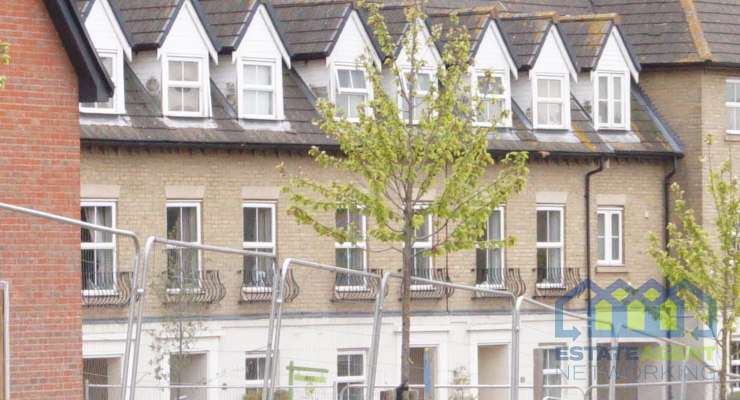Brits set to spend more on self-storage than tea and movies by 2034
LONDON, 26th September 2024 — In a startling trend that reflects the evolving landscape of urban living in the UK, city dwellers are projected to spend a staggering £3.21 billion annually on self-storage by 2034 – nearly triple the current £1.08 billion market. This surge isn’t just about extra space; it’s a mirror reflecting the multifaceted challenges facing modern British society, from the housing crisis to the transformation of work culture.
Key Takeaways for Readers:
By 2034, the average Brit are predicted to spend more on storing possessions than enjoying a cup of tea or a night at the cinema.
Shrinking home sizes force urban dwellers to pay for what amounts to an “extra room” outside their homes.
The rise of remote work is creating a “home office crunch” in already tight living spaces.
Young adults storing their lives in boxes at parents’ homes illustrates the generational housing crisis.
This trend raises urgent questions about urban planning and quality of life in British cities.
The Hidden Costs of Urban Living
The self-storage boom is symptomatic of deeper issues affecting millions across the UK:
Shrinking Living Spaces: With the average UK home now just 76 square metres, and London homes averaging a mere 65 square metres, Britons are increasingly paying for what amounts to an extra room outside their homes. This means a typical London resident might be spending on storage what they could have spent on a larger flat just a decade ago.
The Remote Work Revolution: As 38% of working adults now engage in some form of remote work, many are facing a “home office crunch”. The challenge of creating a productive work area in a small living space is driving the need for external storage solutions.
Generational Housing Crisis: Over a quarter of young adults aged 20-34 are living with parents, their possessions boxed up as they navigate a challenging property market. This “boomerang generation” is storing their independence along with their belongings.
Shifting Economic Priorities: By 2034, expenditure on self-storage could surpass spending on quintessential British pastimes like tea drinking (current market: £1.2 billion) and cinema-going (2023 revenues: £945 million). The UK could be facing a future where storage units outnumber tea shops or cinema screens.
Urban Planning Dilemma: With 83% of the UK population residing in urban areas, this trend raises critical questions about the future of urban development and quality of life in British cities. Are we building cities for living, or for storing?
Beyond Storage: A Societal Barometer
“This isn’t just about storage – it’s a barometer for the pressures facing urban Britain,” says Matt Wallace, at Payless for Storage. “When people are spending more to store their possessions than to enjoy life’s pleasures, we need to ask serious questions about our urban development strategies.”
The Human Side of the Storage Boom
The “Cloffice” Phenomenon: The trend of converting closets into offices (“cloffices”) is on the rise, with many urban professionals resorting to renting storage units for their clothes to make space for home offices.
The Generational Divide: Many parents are keeping storage units full of furniture they hope to pass down to their children, symbolizing the promise of future home ownership for a generation struggling to enter the property market.
The Small Business Struggle: Local shop owners are increasingly using self-storage as an affordable alternative to expensive retail space, effectively creating remote stock rooms.
Wider Implications
The self-storage trend serves as a unique lens through which to view broader societal shifts:
Housing Policy Rethink: The surge in self-storage use underscores the urgent need for innovative housing policies that address space efficiency and affordability.
Work-Life Integration: As remote work becomes the norm, the line between living and working spaces continues to blur, challenging traditional notions of home design.
Intergenerational Wealth Dynamics: The storage boom highlights the changing nature of home ownership and the widening generational wealth gap.
Consumption Patterns: This trend invites scrutiny of consumer behavior and spending priorities in an era of limited space.
Environmental Considerations: The growth in storage facilities raises questions about sustainable urban development and the environmental impact of excess consumption.
This story offers a compelling angle to explore the changing face of urban Britain, touching on issues that resonate with every city dweller’s daily life and long-term aspirations. It provides a fresh perspective on familiar challenges, from housing and work to generational divides and environmental concerns.
If you choose to cover this story it would be very helpful if you could credit by linking to https://paylessforstorage.co.uk/
For questions please contact me and I will be happy to arrange any interviews or answer those questions.
Pay Less for Storage was established in 2001 by Martin Wallace, as one of the first container storage companies in the North East and has since become one of the most reputable container self storage companies in both the North East and now North West of England.









